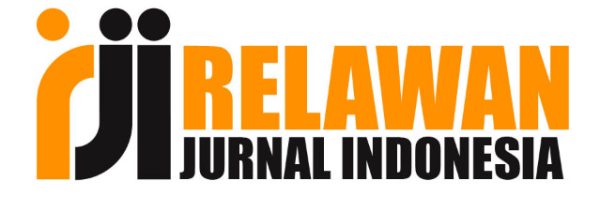Covenants in the Qurʾān
Reflections on Seven Elements of the Maqāṣid Framework
DOI:
https://doi.org/10.52100/jcms.v3i1.122Keywords:
covenants, treaties, Islam, interreligious relations, peace, security, coexistenceAbstract
Covenant (‘ahd and mīthāq) occupies a central place in the Qurʾān but has been understudied and underrepresented in discourses about Islam. This article contributes to redressing this lacuna by conducting a content analysis of the Qurʾān, specifically the terms ‘ahd and mīthāq that refer to the concept of covenant. It applies the Maqāṣid Methodology and Framework developed by Jasser Auda to examine the concepts, objectives, values, commands, universal laws, groups, and proofs associated with covenants in the Qurʾān. Reading the Qurʾān in light of covenants provides a new perspective on issues of human existence and coexistence, including interreligious relations, coexistence with non-Muslims, and conditions governing the legitimate use of armed force in Islam. The article highlights the centrality and significance of covenants in the Qurʾān and contends that the study of covenants in the Qurʾān and sunnah ought to be integrated into Islamic studies curricula.
References
al-Qadi, W. K. (2003). The Primordial Covenant and Human History in the Qur'ān. Proceedings of the American Philosophical Society, 147(4), 332-338.
al-Umari, A.D. (1991). Madinan Society at the Time of the Prophet: Volume I: Its Characteristics and Organization. Herndon: International Institute of Islamic Thought.
Auda, J. (2021). Re-envisioning Islamic scholarship: Maqāṣid methodology as a new approach. Swansea: Claritas Books.
Auda, J. (2008). Maqāṣid Al-Shariah as Philosophy of Islamic Law: A Systems Approach. Herndon, VA: International Institute of Islamic Thought (IIIT).
Berelson, B. (1952). Content analysis in communication research. New York: Free Press.
Crone, P. 1980. Slaves on Horses: The Evolution of the Islamic Polity. Cambridge: Cambridge University Press.
Denny, F. M. (1977). Ummah in the Constitution of Medina. Journal of Near Eastern Studies, 36(1), 39-47.
Drisko, J. W. and Maschi, T. (2016). Content analysis. Pocket Guide to Social Work Research Methods. Oxford: Oxford University Press.
El-Wakil, A. (2019). “Whoever Harms a Dhimmī I Shall Be His Foe on the Day of Judgment:” An Investigation into an Authentic Prophetic Tradition and Its Origins from the Covenants. Religions 10(9), 516. doi: 10.3390/rel10090516.
El-Wakil, A. (2016). The Prophet’s Treaty with the Christians of Najran: An Analytical Study to Determine the Authenticity of the Covenants. Journal of Islamic Studies, 27(3), 273-354. doi: 10.1093/jis/etw027.
Ganter, R. (2016). Yolngu Conversations with Faith: The outward signs of conversion to Christianity and Islam. Australian Studies Journal, 30, 10-43.
Görke, A. 2000. The Historical Tradition about al-Hudaybiya: A Study of ‘Urwa b. al-Zubayr’s Account. In H. Motzki (ed.) The Biography of Muhammad: The Issue of the Sources, Islamic History and Civilization, Leiden: Brill, vol. 32, 240–75.
Gwynne, R. W. (2014). Logic, Rhetoric, and Legal Reasoning in the Qurʾān: God’s Arguments. London: Routledge.
Holsti, O. R. (1969). Content analysis for the social sciences and humanities. Reading. MA: Addison-Wesley.
Hylén, T. (2016). "The hand of God is over their hands (Q48:10): On the Notion of Covenant in al-Ṭabarī's Account of Karbala." Journal of Qurʾānic Studies, 18(2), 58-88.
Jaffer, T. (2015). Is There Covenant Theology in Islam? In M. Daneshgar, and W. Saleh (eds.) Islamic Studies Today: Essays in Honor of Andrew Rippin, Leiden: Brill, 98-121.
Lecker, M. 1984. The Hudaybiyya Treaty and the Expedition against Khaybar. Jerusalem Studies in Arabic and Islam 5, 1–11.
Little, A. (2020). The Politics of Makarrata: Understanding Indigenous–Settler Relations in Australia. Political Theory, 48(1), 30-56.
Lumbard, J. (2015). Covenant and Covenants in the Qurʾān. Journal of Qurʾānic Studies, 17(2), 1-23. doi: 10.3366/jqs.2015.0193.
Morrow, J. A. (2013). The Covenants of the Prophet Muhammad with the Christians of the World. Brooklyn: Angelico Press.
O'Connor, A. (2019). Qurʾānic Covenants Reconsidered: Mīthāq and ʿAhd in Polemical Context. Islam and Christian–Muslim Relations, 30(1), 1-22. doi: 10.1080/09596410.2018.1546042.
Rane, H. (2023). Higher Objectives (maqāṣid) of Covenants in Islam: A Content Analysis of ‘ahd and mīthāq in the Qurʾān, Religions 14(4): 514. https://doi.org/10.3390/rel14040514.
Rane, H. (2022). Interfaith Actor Reception of Islamic Covenants: How ‘New’ Religious Knowledge Influences Views on Interreligious Relations in Islam. Religions, 13(9):873. doi: org/10.3390/rel13090873.
Rubin, U. (1985). The" Constitution of Medina" Some Notes. Studia Islamica, (62), 5-23.
Safi, L. (2008). The Qurʾānic Narrative. Westport: Praeger Publishing.
Saleh, W. A. (2018). "The Preacher of the Meccan Qurʾān: Deuteronomistic History and Confessionalism in Muḥammad's Early Preaching." Journal of Qurʾānic Studies, vol. 20(2), 74-111.
Serjeant, R. B. (1964). The 'Constitution of Medina'. Islamic Quarterly, 8(1), 3.
Wood, A. (2022). Treaty Making (Makarrata) and an ‘Invisible’ People: Seeking a Just Peace After ‘Conflict’. In K. Te Maihāroa, M. Ligaliga, and H. Devere (eds.), Decolonising Peace and Conflict Studies through Indigenous Research, Springer, 231-268.
Zein, I. and El-Wakil, A. (2022a). The Covenants of the Prophet Muḥammad: From Shared Historical Memory to Peaceful Co-existence. London: Routledge.
Zein, I. and El-Wakil, A. (2022b). The Ṣiffīn Arbitration Agreement and Statecraft in Early Islamic Political Documents. Oxford Journal of Islamic Studies, 33(2), 153-202. doi: 10.1093/jis/etac001.
Zein, I. and El-Wakil, A. (2020). Khālid b. al-Wālid’s Treaty with the People of Damascus: Identifying the Source Document through Shared and Competing Historical Memories. Oxford Journal of Islamic Studies, 31(3), 295-328. doi: 10.1093/jis/etaa029.
Downloads
Published
How to Cite
Issue
Section
License
Copyright (c) 2024 Journal of Contemporary Maqasid Studies

This work is licensed under a Creative Commons Attribution-NonCommercial 4.0 International License.






